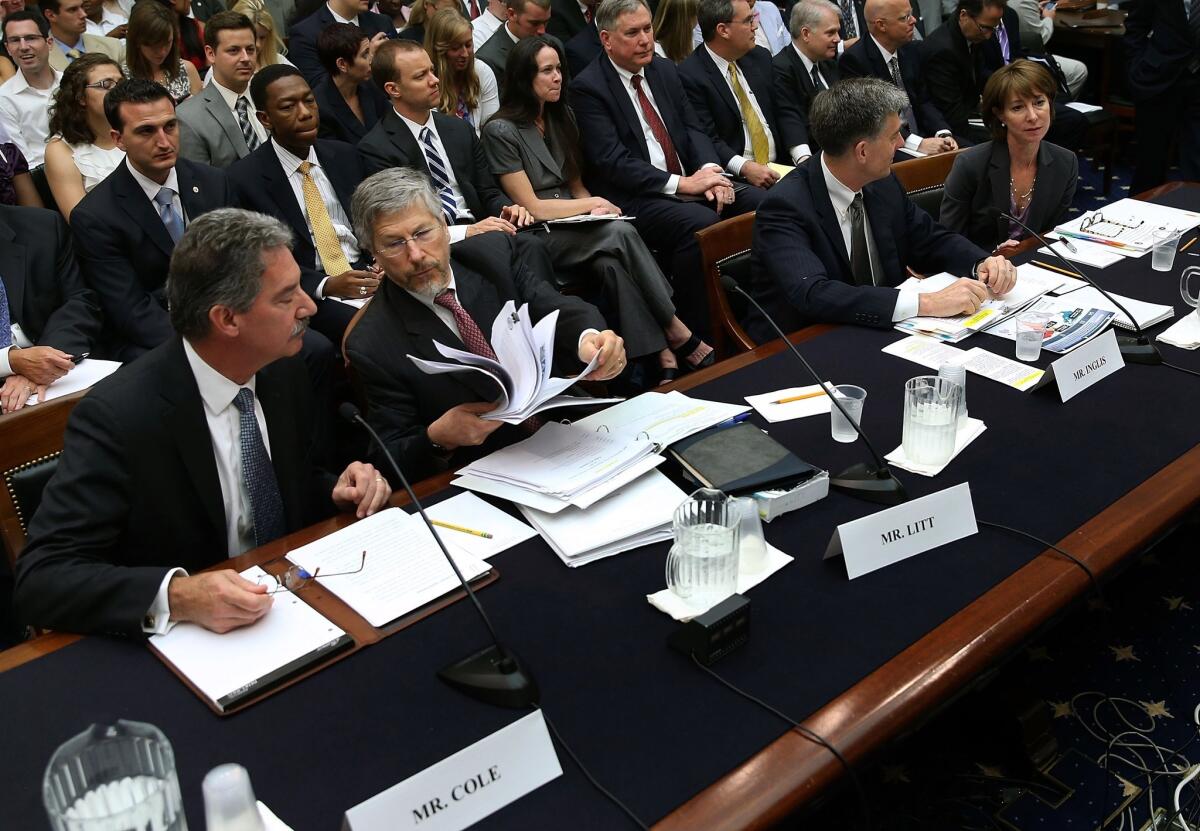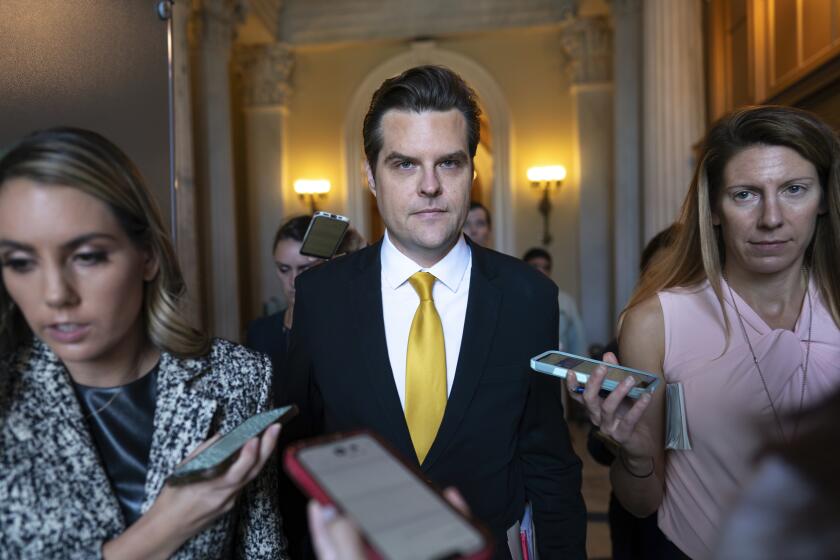McManus: A FISA court devilâs advocate

The Foreign Intelligence Surveillance Court, a tribunal that oversees government eavesdropping, is a strange judicial creation. It lacks many of the usual features of a court. Its proceedings are secret. Its rulings are secret.
But the strangest missing piece of all is the absence of arguments from the other side. Most of the time, the only lawyers who appear are from the federal government, and they represent the agencies asking for approval to wiretap citizens, collect telephone records or compel Internet providers to turn over giant databases of emails. No wonder the government almost always wins.
That one-sided process was arguably reasonable when the court was handling only old-fashioned wiretap requests. Those are basically search warrants, and judges normally approve search warrants without asking the targets whether they object.
PHOTOS: Famous document-leakers in recent history
But more recently, the court has radically expanded the reach of its rulings, approving government requests to collect massive troves of telephone metadata and emails.
Thereâs no indication that the judges sought any outside views before ruling on those requests. As far as we know, the government argued that the data collection was reasonable under the Foreign Intelligence Surveillance Act, and the court â hearing no objections, since nobody was there to object â agreed.
Even some former members of the FISA court are speaking up to say thatâs a little nuts.
âAnyone who has been a judge will tell you a judge needs to hear both sides of a case before deciding,â retired federal Judge James Robertson, who served on the court from 2002 to 2005, told an oversight panel this month. âThis process needs an adversary.â
Heâs right. Itâs time to borrow an almost forgotten judicial device from the medieval Roman Catholic Church: the devilâs advocate.
For centuries, whenever a candidate for sainthood was under consideration, the churchâs Sacred Congregation of Rites held formal adversary hearings, with one canon lawyer appointed to argue against the qualifications of the holy person in question.
Officially, the lawyer who tried to impeach the potential saint was called the âpromoter of the faith.â But since his job was to foment doubts and question miracles, he soon became known as the devilâs advocate.
Pope John Paul II abolished the title, alas, in 1983. But even now, the Vaticanâs canonization board (unlike the FISA court) seeks out adversary testimony. The late Christopher Hitchens testified in 2002 against the beatification of Mother Teresa, a role he described as ârepresenting the Evil One, as it were, pro bono.â
How would a devilâs advocate work in the FISA court?
To begin with, just as in the Vatican, the job would have to be reserved for an insider â a lawyer with the security clearances needed to review the top-secret issues decided by the FISA court.
âSecrecy will still be important,â noted Jeffrey Smith, a former general counsel at the CIA. âFor that reason, I think it should be a lawyer in the executive branch.â
But the job would also need to come with independence built into its charter, and, importantly, with the ability to report directly to Congress, to minimize the problem of the executive branch acting as its own policeman.
Another former judge who served on the court, James G. Carr, has proposed that the judges themselves could appoint independent lawyers as special counsels on a case-by-case basis. He suggests the advocate should have the power to appeal FISA decisions to higher courts; currently, only the government can appeal.
Thereâs a second potential role for a devilâs advocate in the continuing war against terrorists: as a check on the presidentâs power to order the targeted killing of terrorist suspects, especially American citizens. Those decisions are now made entirely within the executive branch, with President Obama making the final call. But that newfound presidential power has prompted unease in both parties in Congress and elsewhere.
âThis idea of being able to execute, in effect, an American citizen ⌠I just think some check on the ability of the president to do this has merit,â former Defense Secretary Robert M. Gates said this year.
There have been proposals to require judicial review of proposed targeted killings, perhaps even by the FISA court. But executive branch officials and some constitutional lawyers say that idea has problems.
For one thing, many judges donât want to take on the job of signing death warrants against suspected terrorists. For another, courts have traditionally shied from infringing on presidential decisions in war.
That legal conundrum has led some lawyers to propose that an independent advocate should be appointed within the executive branch to present the case against a targeted killing.
An independent advocate, whether for targeted killings or for FISA decisions, would probably need to be established by act of Congress, and the legislators would almost certainly choose a bland title: âprivacy advocate,â for example, or âspecial counsel for due process.â
But Iâd propose we call it by its proper name: âthe devilâs advocate.â
Follow Doyle McManus on Twitter @DoyleMcManus
More to Read
A cure for the common opinion
Get thought-provoking perspectives with our weekly newsletter.
You may occasionally receive promotional content from the Los Angeles Times.











